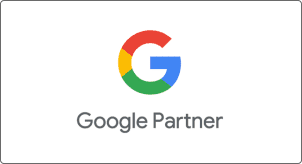For years, websites have relied on third-party cookies to collect valuable user data. Statistics revealed that 40.9% of websites globally utilise cookies to gather data on their users. However, recently, Google took the digital marketing world by shock, announcing they would adopt a cookieless strategy.
It was a significant change for digital marketers, making it difficult for them to track user behaviour. But now, the platform has mentioned that they are going to reverse the cookieless strategy, bringing relief to businesses.
If you are eager to learn about why Google reversed its cookieless strategy and its benefits, let’s dig in!
What is Google’s Cookieless Strategy?
Google’s cookieless strategy refers to the platform’s decision to phase out third-party cookies, making it harder for digital marketers to analyse and track user behaviour across the web. There were many reasons behind Google coming out with this strategy, such as:
- Privacy Concerns: Google initially aimed to adopt a Cookieless strategy in response to the growing privacy concerns among Australians. Statistics reveal that there was an increase in the proportion of Australian adults (82% in 2023, quite up from 75% in 2020) who care about protecting their personal information to do something about it.
Here’s what Google said when initially planning to phase out third-party cookies:
“We continue to invest in features that protect user data and provide them with more control over how it’s used. This includes taking measures to limit the ability to track user activity across different websites.”
- Pressure from Competitors: Although Google is the largest search engine with billions of searches every day, it still faced some market pressure that led it to announce a Cookieless strategy. Other giants like Firefox have already blocked third-party cookies by default. So, to stay competitive and at the top of the minds of the users, Google had to review its privacy policies.
Why Google Reverses Its Cookieless Strategy?
But why does Google has announced to reverse its Cookieless strategy? Let’s explore the reasons:
Market Pressure
Businesses and digital marketers heavily rely on third-party cookies to gain more information about their ideal audience behaviour.
However, with Google going Cookieless, they experienced a decline in ad effectiveness, which led to low ROI.
This prompted businesses and marketers to look for other platforms that put significant market pressure on Google, resulting in the reversal of the Cookieless strategy.
Advertiser Feedback
Advertisers were constantly complaining that Cookieless’s strategy was going to hinder its ability to deliver personalised ads to customers and reduce campaign effectiveness, which made Google rethink its decision.
Concerns About Alternative Tracking Method
Google offered the privacy Sandbox as a privacy-friendly alternative to third-party cookies. However, learning its usage and implementing it on complex business infrastructure and digital campaigns was not quite time-consuming. To avoid this hassle completely, Google announced that they are reversing their Cookieless strategy.
How Digital Marketers Can Adapt to Google’s Cookieless Strategy U-Turn?
If you are wondering how you can adapt to Google’s Cookieless strategy u-turn, here are some important tips:
- Rely More on First-Party Data: While Google has announced they are reversing the cookieless strategy, you shouldn’t fall into the same trap again. Instead, focus on first-party data, which is here to stay. Collect valuable information directly from customers through channels like website interactions, emails, and purchase histories. Integrate this into your CRM, and you will be sorted!
- Focus More on User Privacy: Third-party cookies may stick around for now, but Google’s emphasis on privacy is only going to grow. As a marketer, you should also prioritise transparent data practices and comply with GDPR. You should gain user trust by telling them exactly how their data is used, which will give you a competitive edge whenever Google thinks of going cookieless again.
Understanding the Benefits: A Return to Cookies in Digital Marketing
The benefits of cookies in digital marketing are plenty, including:
Better Ads Targeting
Cookies give you complete information about a user, their liking, and even their device. You get to know what products they previously purchased and liked. Armed with this information, you can then personalise your ad content which helps you in better targeting and converting visitors into customers.
Improve Customer Engagement
Third-party cookies are also a great tool for increasing customer engagement. How? Well, these cookies allow you to track user behaviour across the website. You can then suggest related product recommendations and deals that may excite them, leading to exploration and content engagement.
FAQs
What led Google to reverse its cookieless strategy?
Google reversed its cookieless strategy due to feedback from advertisers about how their ads weren’t going to be as effective as before and increased market pressure.
How does Google’s reversal impact digital marketers?
The reversal allows digital marketers to continue using third-party cookies for personalised advertising, bringing in more customer engagement and revenue.
Will Google phase out cookies in the future?
Well, although there are no such claims about whether Google will phase out cookies in the future, it’s suggested that digital marketing experts put their focus on first-party data and user privacy.
What role do third-party cookies play in performance analytics?
Third-party cookies play a crucial role in performance analytics, providing digital marketing experts with information about their ad’s effectiveness, conversion rate, bounce rate, and user engagement.
How should marketers adjust their strategy in light of Google’s reversal?
Marketers should adjust their strategy by still focusing on first-party data and enhancing user privacy measures. It’ll not only make you future-proof but also help you gain user trust, which is key to digital marketing success.
How does Google’s policy shift influence lead-generation campaigns?
Google’s policy shift enables digital marketing experts to still use cookies for their lead generation campaigns for better targeting and driving more engagement that improves lead conversion rates.
Conclusion
Google’s reversal of the Cookieless strategy is a sigh of relief for digital marketers. Nonetheless, you should focus more on user privacy to stay ahead of any such future changes. Are you looking for reliable digital marketers to handle your online business growth? Look no further than 3-Phase Marketing! We are experts in digital marketing, providing you with real-time performance analytics so you are aware of your business success.
Contact us today to learn more about us, and rest assured that no Google policy change can impact your brand campaigns!







